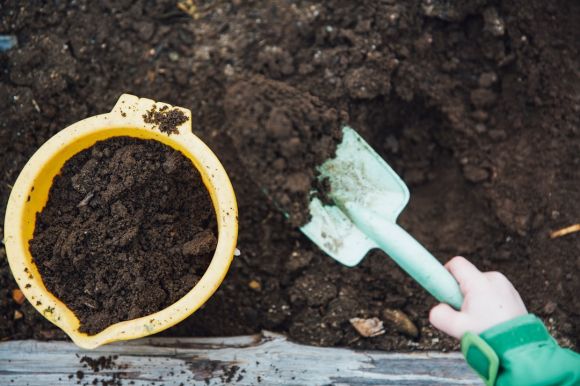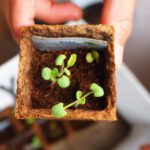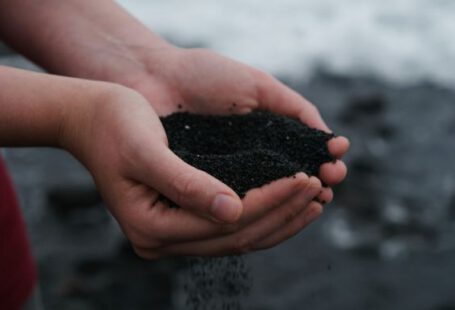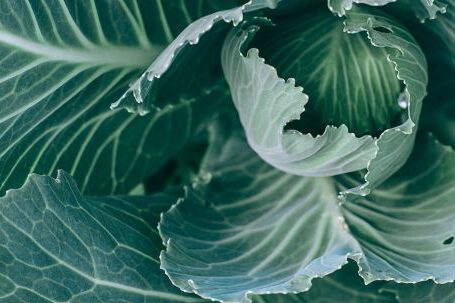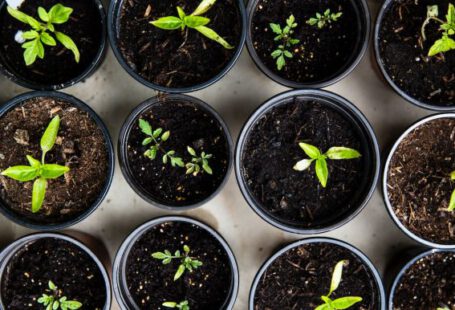Composting is a natural process that turns organic waste into nutrient-rich soil. It is an eco-friendly way to recycle kitchen scraps, yard waste, and other organic materials. While composting is a simple and effective method, it can sometimes take longer than desired for the materials to break down completely. If you’re looking to speed up the composting process, here are some tips to help you achieve faster results.
1. Shred or Chop Materials
One way to accelerate the composting process is to shred or chop the materials into smaller pieces. By breaking down the waste into smaller particles, you increase the surface area available for decomposition. This allows the microorganisms responsible for composting to work more efficiently, resulting in faster decomposition.
2. Mix Green and Brown Materials
Composting requires a balance of green and brown materials. Green materials include items like grass clippings and vegetable scraps, which are rich in nitrogen. Brown materials, such as dry leaves and newspaper, are high in carbon. For faster composting, it’s essential to maintain a proper ratio of these materials. Aim for a ratio of roughly three parts brown to one part green. This balance provides the necessary nutrients for the microorganisms to thrive and speed up the decomposition process.
3. Turn the Pile Regularly
Turning the compost pile regularly is crucial in speeding up the decomposition process. Mixing the materials aerates the pile, allowing oxygen to reach the microorganisms, which helps them break down the waste faster. Turning the pile also helps distribute moisture evenly, preventing dry spots that can hinder decomposition. Aim to turn the pile every two to three weeks to ensure optimal decomposition.
4. Maintain Moisture Levels
Moisture is essential for composting. The microorganisms responsible for breaking down the waste need a moist environment to survive and thrive. If the compost pile becomes too dry, decomposition slows down significantly. On the other hand, if it becomes too wet, it can become waterlogged and lack oxygen. To maintain the right moisture levels, aim for a compost pile that is as moist as a wrung-out sponge. If it’s too dry, add water, and if it’s too wet, add dry materials like dry leaves or shredded paper.
5. Add Compost Accelerators
Compost accelerators are products that contain beneficial microorganisms that speed up the decomposition process. They are often available in granular or liquid form and can help jumpstart the composting process. These accelerators introduce a higher concentration of microorganisms to the compost pile, enhancing their ability to break down the organic waste. Follow the instructions on the product packaging for the correct application method and dosage.
6. Use a Compost Tumbler
If you’re looking for a more efficient and convenient way to speed up the composting process, consider using a compost tumbler. These specially designed containers allow you to easily turn the compost by rotating the drum. The constant mixing and aeration provided by a compost tumbler result in faster decomposition. Additionally, the enclosed design helps retain heat, which further accelerates the composting process.
In conclusion, speeding up the composting process requires a combination of factors, including shredding materials, maintaining a proper balance of green and brown materials, regular turning of the pile, maintaining moisture levels, using compost accelerators, and considering a compost tumbler. By implementing these tips, you can significantly reduce the time it takes for your organic waste to turn into nutrient-rich compost. Not only will you have a more efficient composting system, but you’ll also be contributing to a healthier environment by recycling organic materials.
